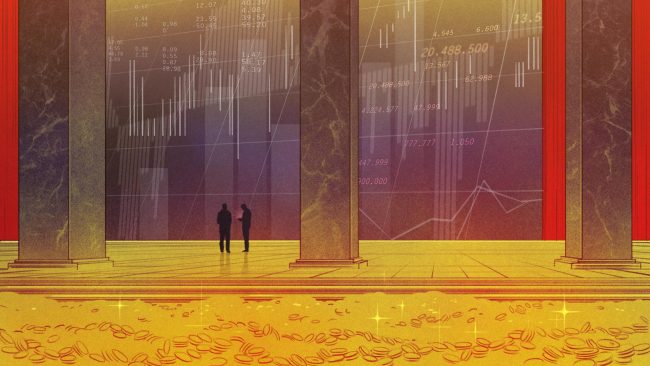Prop Trading Firms: 9 Digital Tools for Better Stock Trading Decisions

As a modern trader or an ambitious entrepreneur, you’re likely on a relentless quest for strategies and tools that can help elevate your financial acumen.
Have you ever considered the power of proprietary trading firms and the digital tools they leverage for superior stock trading decisions? If not, it’s high time you did.
Prop trading firms employ various digital tools that facilitate smarter, faster, and more profitable trading decisions. Often overlooked tools can revolutionize your trading experience, providing real-time insights, predictive analytics, and a wealth of other features tailored to your trading needs.
This article will uncover ten powerful digital tools prop trading firms use to make better stock trading decisions. These tools range from charting software to advanced AI-driven analytics platforms.
So sit back, and allow me to guide you through this exciting journey of discovery, which could well redefine your trading strategy.
1. Charting Tools: The Backbone of Technical Analysis
Technical analysis is a critical element of trading, whether you’re a day trader, swing trader, or long-term investor. It involves interpreting historical price data to anticipate potential market trends. Charting tools are the bedrock of this analysis.
Software like TradeStation and TradingView provide intricate visual representations of price movements. With these platforms, you can easily draw trendlines, set support and resistance levels, and add technical indicators.
In this digital era, charting tools have evolved, offering more than just static graphs. They allow you to customize and save chart layouts, annotate and share charts, and even trade directly from the charts. Our Trade Ideas review might give you a good starting point in understanding how advanced these charting tools can be, helping traders make data-driven decisions.
2. Real-Time Market Data Platforms: Staying a Step Ahead
In trading, seconds can mean the difference between profit and loss. Therefore, having access to real-time market data is crucial. This includes live price updates, economic news, market sentiment analysis, and more.
Some platforms offer real-time data and are known for their extensive stock screener capabilities, enabling you to filter stocks based on a wide range of criteria.
Such platforms offer news updates, insider trading alerts, and futures data. They can even provide visuals of market trends and patterns, helping you understand the market’s direction.
A platform like Finviz might give you the timely information you need to stay one step ahead in the fast-paced trading world.
3. Backtesting Software: Learning from the Past
While past performance does not often indicate future results, backtesting software allows traders to test their strategies using historical data.
It involves simulating trades based on this data and analyzing the results. It’s like a “time machine” for traders, allowing you to see how a particular strategy would have performed in the past.
Backtesting software can help validate your trading strategy before you risk real capital. It can identify potential weaknesses and areas for improvement. It also allows you to amend your strategy, optimizing it for maximum profitability based on historical performance.
4. Risk Management Tools: Safeguarding Your Investments
Risk management is arguably the most critical aspect of successful trading. No matter how good your strategy is, there’s always the risk of loss in trading.
This can play a key role in managing this risk. These tools can help you calculate the risk-reward ratio, set stop-loss and take-profit levels, and manage your overall trading capital.
5. Social Trading Networks: Harnessing Collective Wisdom
In the digital age, trading has become a collective effort. Social trading networks like eToro provide a platform where traders can share and discuss trading ideas, strategies, and market insights.
These platforms allow you to follow successful traders, mimic their trades, and learn from their experiences. It’s like having a team of expert advisors helping you make informed trading decisions.
6. Automated Trading Systems: Embracing Efficiency
Automation has been a game-changer in the trading world. Automated trading systems, or algorithmic or algo-trading, involve computer programs to execute trades based on predefined criteria.
These systems can monitor the markets 24/7, place trades instantly when the conditions are met, and eliminate the emotional aspect of trading.
Moreover, they can manage multiple trading accounts and apply various strategies simultaneously, which a human trader might find challenging.
7. Economic Calendar: Staying Informed
Financial markets can be greatly affected by economic events. To help keep track of important events, an economic calendar is used. This tool lists significant events like interest rate decisions, job reports, and GDP data, including their expected impact.
Keeping an eye on these events can help you anticipate market movements and plan your trades accordingly.
8. Portfolio Management Tools: Keeping Track
Any trader must keep track of their trades, profits, losses, and overall portfolio performance. Portfolio management tools provide a comprehensive overview of your investments, allowing you to assess your performance, calculate your returns, and adjust your trading strategy.
9. Trading Journals: Reflecting and Improving
A trading journal is an excellent tool for recording and reviewing your trades. It can help you understand your trading habits, identify recurring patterns, and improve your trading strategy.
It’s a reflection tool that can provide valuable insights into your trading behavior and decision-making process.


